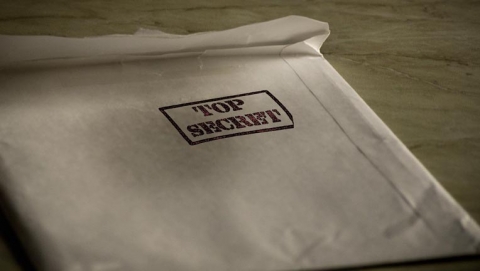You’ve probably heard of the Trans-Pacific Partnership Agreement (TPPA) by now and the widespread concerns around it but what about the Trade in Services Agreement (TISA) also being currently negotiated by our Government?
TISA is another so-called trade deal, negotiated in secret, aiming at a liberalisation of rules and regulations benefitting global corporations. Negotiations began behind closed doors in 2013 amongst 23 nations and staggeringly they have agreed the text of the agreement will remain classified for five years after it comes into force. Wikileaks have just revealed more of the documents.
Concerns have been raised around TISA’s deregulation agenda in services such as transport, water, broadcasting, aged care, the financial sector and New Zealand’s Education Institute is warning offshore corporations could come here and demand the same access to Government education funding. I’ve been looking into the Internet implications of TISA and am deeply concerned for implications on free and open source software, online privacy, the free flow of information and net neutrality.
One big concern is the agreement could also make it impossible for a future Government to require open source software unless it is software used for critical infrastructure. In the leaked texts revealed it says:
Article 6: … Transfer or Access to Source Code 1. No Party may require the transfer of, or access to, source code of software owned by a person of another Party, as a condition of providing services related to such software in its territory.
Every year the New Zealand Government spends millions on proprietary software (think Microsoft) and there are valid arguments for using or giving priority to free and open source software as it can be more affordable, desirable and secure. If this article passes as is, it looks pretty clear it would be difficult to encourage or give priority for tendering for open source software as happens in specific areas of the US, EU and UK or as I proposed at the last Election. You wouldn’t have to think too hard to wonder which companies are lobbying for this but if it passed it would leave the Government with less freedom to move and citizens worse off.
TISA could also stop us requiring where data is stored. The Electronic Frontier Foundation say in their analysis it contains a provision that bans countries from regulating how and when any given company can move, access, and process the data for its services, basically data localisation rules.
Article X.4: Movement of Information No Party may prevent a service supplier of another Party from transferring, accessing, processing or storing information, including personal information, within or outside the Party’s territory, where such activity is carried out in connection with the conduct of the service supplier’s business.
Laws such as these are aimed to ensure companies like Facebook follow national rules to protect their citizen’s data or to avoid say sensitive health records are opened to permissive snooping rules if stored in another country. An example of this is currently the Tax Administration Act 1994 and the Goods and Services Tax Act 1985 which require taxpayers to keep business and GST records in New Zealand and can only be stored offshore if agreed to by the Commissioner of Inland Revenue. I agree with the EFF’s analysis there are arguments for and against information location rules but this important debate should be had in public not behind closed doors and revealed years after decisions are made.
A third red flag in TISA is around Net neutrality. The provisions on “Open Networks, Network Access and Use” use vague language around reasonable network management which could be broad enough to circumvent net neutrality principles that aim to ensure ISPs provide equal access to content and don’t block or throttle content say from a competitor. Net neutrality is something I’ve drafted legislation to protect and something our Government is monitoring and it’s important to ensure and not risk in a secret international agreement.
TISA has managed to run below the radar so far but it’s critical it receives more critical attention. Removing abilities to encourage open source software, remove data localisation rules and threaten net neutrality should all be warning bells. The TPPA, TISA and other attempts like ACTA, negotiated in secret, risk big changes to important areas like the Internet and the citizens of all the countries involved deserve transparency and more accountability. It’s time to press ‘CTRL, ALT, DEL.’ On TISA and the TPPA.







Herald says tppa is to be approved next week ,the public have once again been ignored by Key and Groser.Key assures us our medicines wont be affected , when have we ever believed his lies.
9=6=3 captcha
The treaty of waitangi will cause all sorts of headaches if the TPPA is signed without Maori knowing what the text is. The government cannot sign over New Zealand when it does not belong to them.
it is time for another TPPA protest march, I think the crowd will have grown since the last one.
Thanks for highlighting this Gareth. I know some of the technical arguments geek activists get into around free code software, open source development, net neutrality etc can be a bit dense at first. But like the legal arguments around the implications of Low Wage Treaties (a more accurate name for “free trade deals”), it’s worth taking the time to familiarize oneself with at least the key points, because they can and do affect all our lives.
Hopefully Aotearoa can be part of defeating TPPA and TISA, just as we were part of defeating the MAI (“Multilateral Agreement on Investment”) in the early 2000s), and ACTA (“Anti-Counterfeiting Trade Agreement”) in 2012. For example, the PublicACTA meeting in Wellington, timed to coincide with a secret ACTA negotiation there, put out the “Wellington Declaration” against ACTA which was signed by thousands of people online as the campaign ramped up. In response to ACTA, the Free Software Foundation put together a set of key points about our rights as computer and internet users, which are also relevant to TPPA and TISA:
http://www.fsf.org/campaigns/acta/acta-declaration
“National sells NZ to overseas corporations”. A headline you will never see in any NZ MSM publication.
I am not sure Gareth’s concerns re Article 6 and open source software are valid. Article 6 doesn’t apply to open source software, as the source code is already available. Article 6 applies to proprietary software, where the source code isn’t available.
If it is open source, then by definition, the source code is available. If the source code is not available, then it is not open source. You can only require that source code be transferred or made available if it isn’t available in the first place.
Comments are closed.